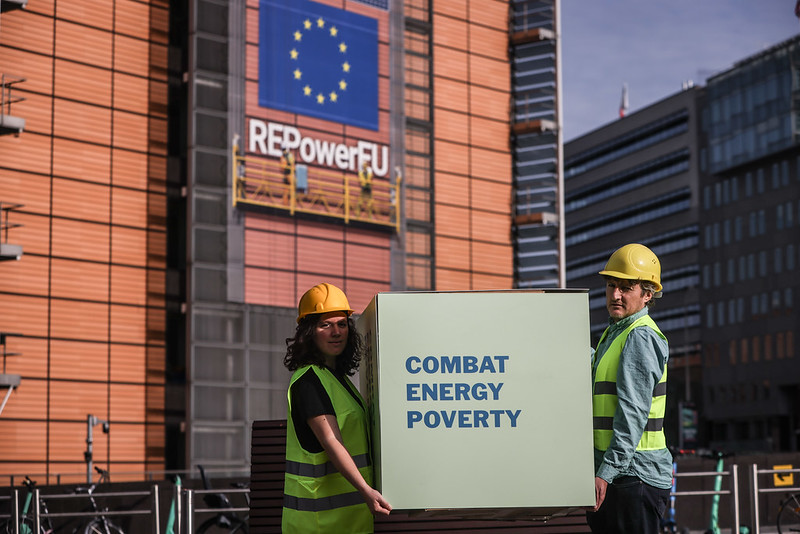Brussels, December 8, 2023 – Following the last political trilogue yesterday, it is clear that the Energy Performance of Buildings Directive (EPBD) framework falls short in both ambition and prioritisation of the worst performing homes to actually achieve one of the most important goals of the renovation wave: deliver better living-standards for Europeans. This is so as it fails to really target the worst performing homes and to deliver much-needed renovations for the people whose energy consumption leaks out through their windows and doors.
Although, we welcome some improvements included in this revision to ensure the most vulnerable can benefit from buildings renovation, the revised directive does not deliver sufficiently neither for the climate, nor for supporting people in energy poverty. For instance:
- Minimum Energy Performance Standards for residential buildings have been so watered down that the framework does not provide the sufficient ambition to speed up renovations beyond business as usual and ensure that Europe’s housing is renovated fast enough to deliver climate justice.
- Defining “worst performing buildings” as the lowest 43% of the national stock fails to really target the lowest performing ones where the most vulnerable families’ lives failing to ensure the priorisisation of the leakiest homes in the renovation wave.
- Fossil fuel phase out provisions delay the transition to fossil free homes long past the moment when Europe should phase out fossil gas.
Laia Segura, Energy justice campaigner at Friends of the Earth Europe said:
“The buildings directive promised a renovation wave that could lift millions out of energy poverty. Instead, the poorest are now left stranded, with no guarantees that the leakiest homes will get the renovations they need. With Europe’s consumers left hooked on fossil gas for years to come, and renovations too slow to keep within our climate targets, Europe’s governments need to back up this law with swift and targeted programmes to ensure Europe’s worst homes are urgently renovated, to phase out fossil boilers and to increase the speed of renovations beyond the ambition of the new buildings law.”






